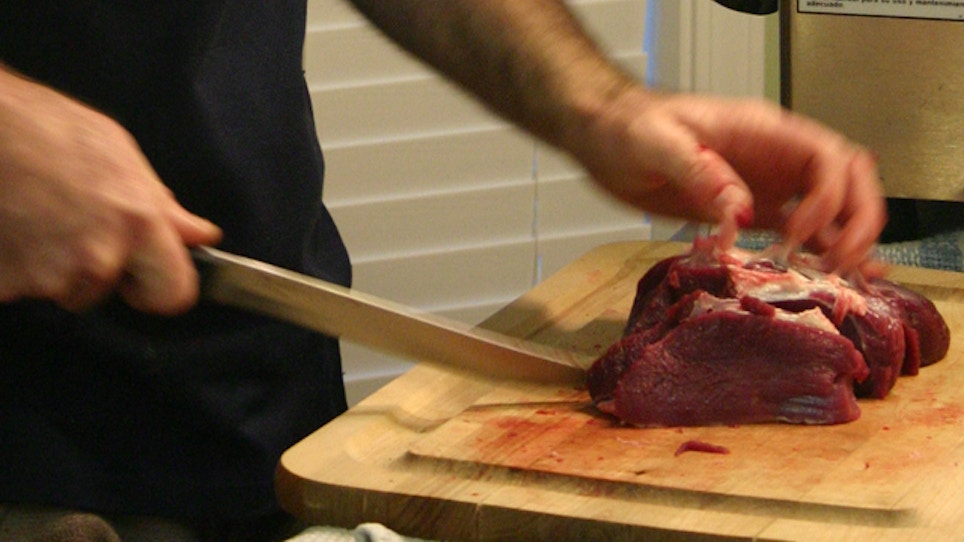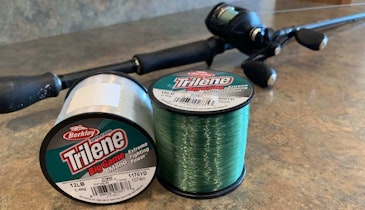By HANNA RASKIN | The Post and Courier of Charleston
CHARLESTON, S.C. (AP) — When you grow your own heirloom onions, grind your own buckwheat flour, ferment your own kombucha and keep a chicken in a backyard coop so you can measure your breakfast in ecological food feet, what's left for a dedicated local eater to do? For a number of kitchen fundamentalists, the answer increasingly involves picking up a gun and heading for the woods.
After decades on the decline, hunting participation surged 9 percent between 2006 and 2011. Although researchers are still trying to make sense of the uptick, a recent study funded by the U.S. Fish and Wildlife Service showed 10 percent of state resource management agencies cited “locavore/foodie/green movement” as one factor contributing to the sport's growth.
“Almost every Southern chef I know has either a new or longtime tradition of an outdoor lifestyle,” says Chris Hastings, a self-described avid outdoorsman and executive chef of Birmingham, Ala.'s Hot & Hot Fish Club. “The time spent out hunting connects you back to the land in a way that changes how you think about food. That's a really, really big and profound food moment.”
It's unclear exactly how many new hunters view the pastime as an extension of their home butchering sessions or CSA memberships, but food writer Hank Shaw, who describes himself on his James Beard Foundation award-winning blog as “a constant forager, angler, hunter, gardener and fan of farmer's markets,” uses an expression that's unprintable in a family newspaper to convey the impressive magnitude of the demographic.
Bob St. Pierre, spokesman for Pheasants Forever Inc. and Quail Forever, says hunting organizations are beginning to pay close attention to the trend. “We're very active in social media, and far and away, the number one thing that drives comments - there's nothing even close - is dogs. Number two is shotguns. But number three is wild game cooking. That's what got us to sit up and take notice.”
Nobody's sure how to refer to the booming culinary contingent. “There really is no good term,” says Shaw, who rejects the popular “hipster hunter” label as affected. “`Adult-onset hunter' sounds like a disease. And `food-oriented hunter' makes the traditional hook-and-bullet crowd sound like it's not (interested in food.)” But industry insiders agree that if the newcomers begin to identify as hunters and assume the ethical code associated with the pursuit, the phenomenon, whatever it's called, could be a major boon for land conservation efforts.
“It has a glimmer of hope for people to come together for something they care about,” Shaw says.
In South Carolina, the growth of hunting participation from 2006-11 outpaced the national average. But Freddy St. Laurent, president of South Carolina Quality Deer Management Association's Lowcountry branch, says very few adults around Charleston have expressed interest in taking up deer hunting. “Most people that hunt today don't get involved at an older age,” he says.
“I had a girl in her 30s, she called me up and said `I don't know anything about hunting, can you help me?”' he continues. “But it's just a very expensive sport to get started in without a connection. You spend $600 on a shotgun, and you haven't even bought your first camouflage clothing or a deer stand. Now you're over $1,000 in, and you don't even have a place to hunt.”
St. Laurent theorizes that many enthusiastic home cooks in the Lowcountry are confining their outdoor adventures to fishing and foraging. “Fishing is so easy, and it's safe,” he says. “People are afraid of guns.”
Allowing that he has trouble wheedling a dozen of his group's members into organizing an annual banquet, he doesn't envision mounting a significant outreach campaign any time soon, although he volunteered that he might broach the topic at his next board meeting. St. Laurent has noticed most of the area outdoors stores offer fishing workshops, and wonders if they couldn't appeal to local food lovers with a series of hunting-themed classes.
“I don't have the remedy or the solution. It's a challenge, and I'm scared to death,” he says. “When we lose hunters, then more people are against guns.”
Conflating hunting participation with conservative political causes may initially alienate new hunters who come for the food, says Tovar Cerulli, author of “The Mindful Carnivore: A Vegetarian's Hunt for Sustenance.” Cerulli was a vegan before he decided to re-examine the roles of life and death in his diet by trying to bag a deer. He now serves on the board of the New England Chapter of Backcountry Hunters & Anglers.
“If what nonhunters' experience has been is the popular culture portrayal of hunting, all about trophy bucks and big egos, they're going to come in with judgment,” says Cerulli. “I came in with that, and I think a lot of people do.”
Cerulli stresses that new adult hunters represent the full range of the political spectrum, but when he wrote his master's thesis on `adult-onset hunters,' he discovered that longtime hunters and locavore hunters talk about the sport in very different ways.
“A lot of lifetime hunters, not all, will talk about the fact they enjoy the challenge of the hunt,” Cerulli says. “To nonhunters, challenge is kind of a weird reason to go kill something. Nonhunters are more likely to talk about how engaging it is, how magical and intense and meditative it is, just being out in the woods.”
Of course, Cerulli says, there are overlaps in meaning. But sometimes it takes sharing a duck blind for two hunters to overcome their imagined differences.
“When we first start, it feels like there's a bigger gulf between us,” Cerulli says. “I've developed an unexpected circle of friends who are hunters. I think breaking down these stereotypes has a lot of potential to enhance collaboration between what are perceived as environmental organizations and what are perceived as hunting organizations.”
Moving beyond stereotypes is a first step toward unifying two groups with strongly developed senses of ecological responsibility. But Shaw warns the hunting media's emphasis on trophies and “Duck Dynasty” bravado isn't the sole reason interested gourmands are failing to fully integrate into the existing hunting community. In many cases, new hunters are slow to understand the essence of the sport.
“They're still in the larval stage of hunting,” Shaw sighs. “They want to fill a bag every day. It's the video game generation, where satisfaction comes much faster than real life.”
Hunters have always eaten their kill: “I hear, `I'm a different kind of hunter; I'm going to eat what I get,”' Shaw says of the most misguided new hunters. “It makes me want to slap them.” But hunters armed with recipes - such as Shaw's goose stew with barley and celery root, which calls for eight goose legs - are prone to focus myopically on bringing an animal home.
“It takes time, and a lot of people don't have that these days,” St. Laurent says. “This generation is too lazy. Most people want instant gratification if they're spending money and doing something. They get burned out and disappear. And next thing you know, they're buying a boat.”
Shaw says new hunters could avoid disappointment if they sought mentors.
“They're big book readers, they're big Internet readers,” Shaw says. “They're very much the DIY crowd, so what they find surprising is `oh my gosh, there's knowledge that's not on the Internet.' One guy, it took him six years to shoot a deer. Had he had some mentors, it would have taken him six days.”
One of the best ways for new hunters to connect with mentors is to join a conservation group, which Shaw strongly espouses. “These groups, and there is one for almost every major game animal or fish out there, are a vital force for restoring, maintaining and expanding the habitats we hunt, fish or forage in,” he chided his blog readers.
Yet many new hunters resist joining up, perhaps because they don't yet think of themselves as suitable members. “I think there's an easing into hunting, sort of like coming out of the closet, asking yourself, `Where's my place in the world?”' Cerulli says. Or they may fear the clubs are right-wing organizations, fronting for the National Rifle Association.
“When you come in with a name like Pheasants Forever, there's the perception that these people are just a bunch of rednecks,” says St. Pierre, whose group has begun actively courting the food-driven set. “But the process I look at here is food leads to hunting, which leads to an understanding of habitat, which leads to an opportunity to convert to the cause of conservation.”
So Pheasants Forever has begun developing new recipe booklets, and St. Pierre says late-blooming hunters aren't the only beneficiaries.
“It opens people up to the idea there's a tremendous amount of meat on legs and thighs,” he says. “As a conservationist, why in the world would you discard the leg and thigh just because you don't know how to cook it?”
Plus, he adds, “People want to know what they can do with their pheasant beyond cream of mushroom soup and mashed potatoes. They're tired of wrapping everything in bacon.”
———
Information from: The Post and Courier, www.postandcourier.com






